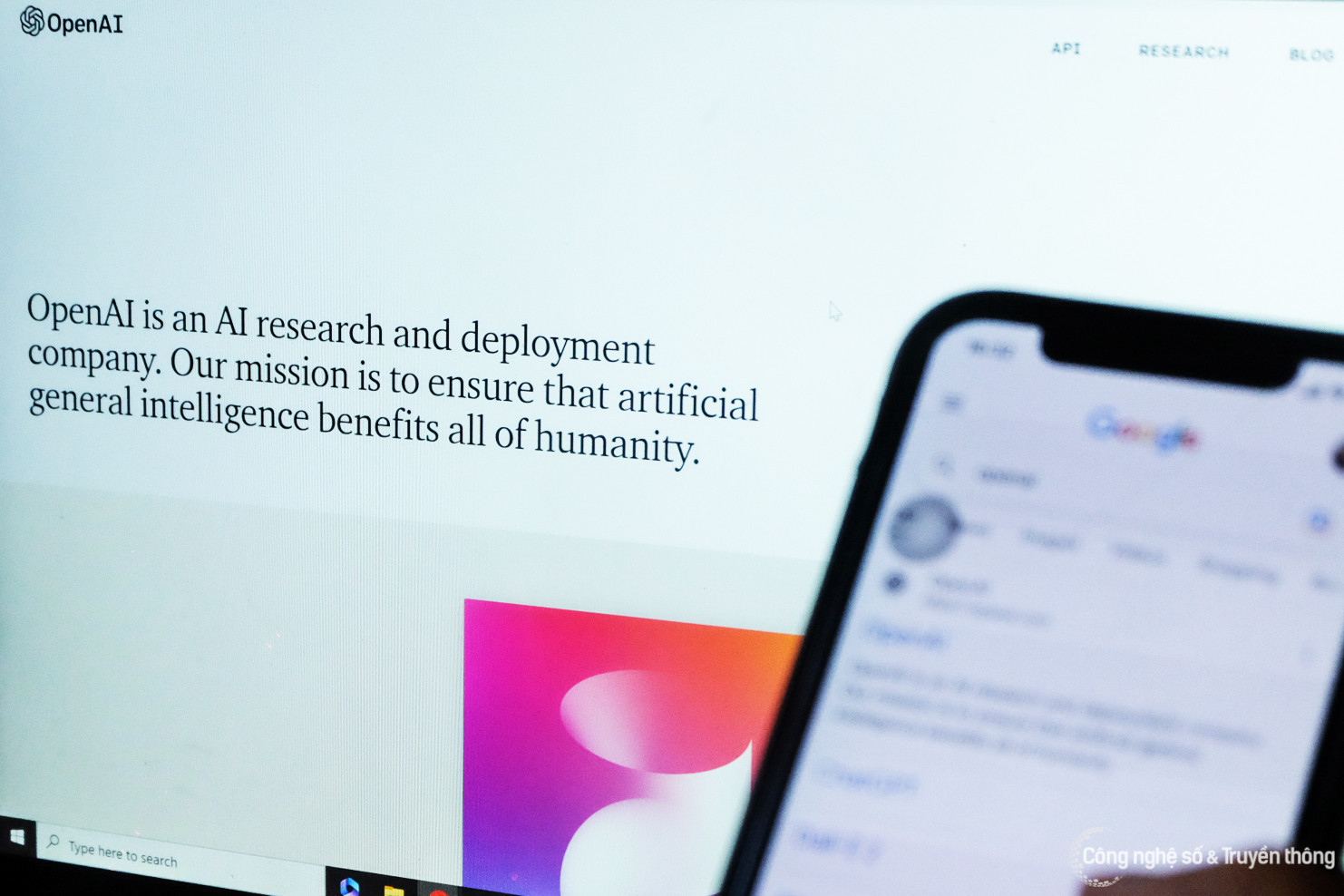ChatGPT is a natural language processing program developed by OpenAI with the ability to answer most questions from its users. After only two months since its launch, ChatGPT now has 100 million users.
Along with the quick rise of ChatGPT, many problems regarding the AI program are now being discussed. VietNamNet is introducing several articles about ChatGPT from the perspective of Vietnamese experts.

The rise of ChatGPT will promote the development and application of AI in Vietnam, especially with chatbots, voice assistants, and image analysis in healthcare and transportation, Mr. Dang Thai Hoa, Deputy General Director of Rikkeisoft and Director of Rikkei AI, said in an interview with VietNamNet.
What do you think about “ChatGPT fever” in Vietnam?
ChatGPT users are from many different industries. They feel that no chatbot tool can give such good answers in all fields as ChatGPT does.
Compared with previous chatbot models, ChatGPT has advantages in terms of technology, as well as the level of investment in data and the use of humans to train AI. However, from my personal viewpoint, there are two issues about ChatGPT: the depth and reliability of the answers.
The results returned by ChatGPT are generated from AI, based on large amounts of previously learned data, so this tool cannot be completely trusted. As for depth, a chatbot capable of giving information about all fields is certainly not as deep as experts who spend years researching only one issue.
How will the rise of ChatGPT affect the tech world in the coming years?
The rise of ChatGPT makes the AI technology market attractive again. After ChatGPT was introduced, many big technology corporations have launched new products and services such as Microsoft upgrading Bing, Google researching and developing new chatbots. In the next 1-2 years, chatbots as well as AI technology will certainly receive more attention.
Not only in the field of technology, many other industries such as content creation and education will be affected by the ChatGPT fever.
Through learning more through data and interacting with people, ChatGPT will become more and more perfect and gradually, it will be difficult for users to distinguish whether the results returned by ChatGPT or real people.
However, in fact, ChatGPT cannot be applied to business activities of enterprises because this tool only helps to synthesize, select and provide information, but does not have the ability to evaluate and analyze in-depth.
Information insecurity risks are possible when using ChatGPT. Therefore, users need to avoid providing this AI app with personal information as well as data about business activities.

Where are Vietnamese AI products in the world?
In Vietnam, technology companies have invested in AI, but their investment is still limited. The reason is because investing in AI requires big data and capital, not to mention legal issues.
As far as I know, a research group in Vietnam is applying ChatGPT to create the VoiceGPT platform (an audio and chat application to give answers).
Many Vietnamese companies have launched chatbot products to serve sales consulting and internal communication. However, to develop such a product as ChatGPT, it will take a lot of investment in training and machine learning teams.
Vietnamese AI engineers are young and eager to learn. This will be Vietnam's competitive advantage in this field.
In the race among technology giants, will Vietnamese businesses find any opportunities for themselves?
Insider Intelligence predicts that in 2024, consumer retail spending through chatbots worldwide will reach $142 billion, compared to $2.8 billion in 2019.
Chatbots will become more popular in the world and in Vietnam. In my opinion, marketing, payments, customer service processing are the areas where chatbots promote the strongest capabilities. As chatbots demonstrate their capabilities by helping businesses reduce operating costs, this market will expand.
If ChatGPT is officially supported in Vietnam, along with the development of technology, the demand for 24/7/365 services of customers will rise. This will drive companies to rapidly transform, develop chatbots and virtual assistants to serve customers at any time of the day.
What goals should Vietnamese AI businesses aim for?
Products applying AI technology in Vietnam will increasingly penetrate into people's daily lives such as voice assistants, image analysis in healthcare and traffic.
Looking at the full picture of the AI market in Vietnam, the potential to bring applications of AI to real life is abundant. It is Vietnamese businesses and products exclusively for Vietnamese people that will be the driving force for the development of Vietnam's AI industry.
Trong Dat